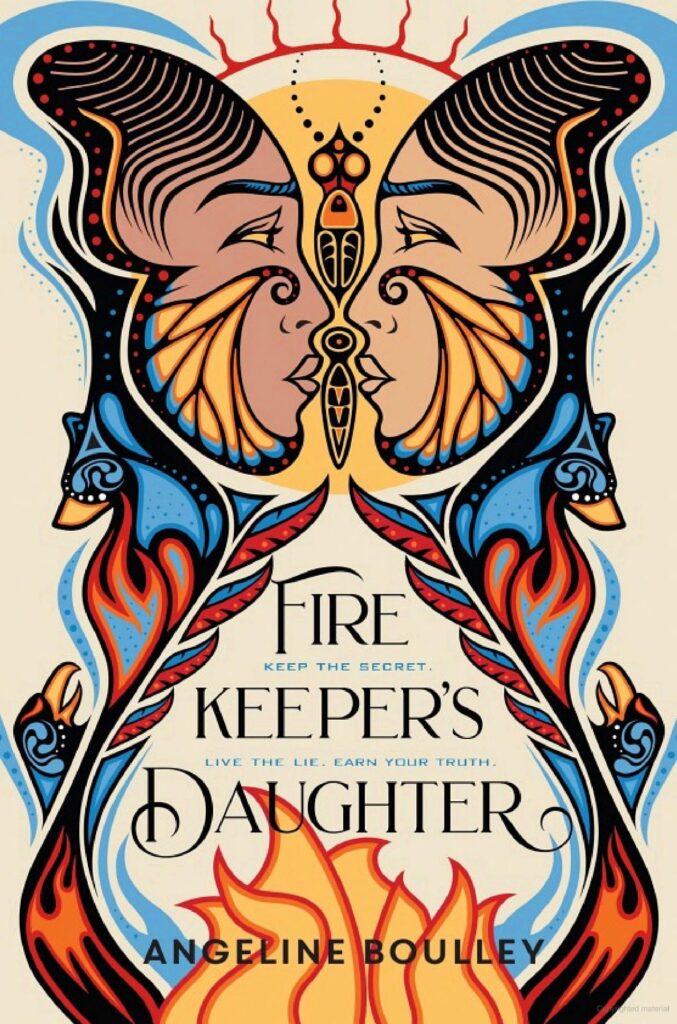
Grounded in reality. Rooted in culture. The Firekeeper’s Daughter is a thrilling debut set in the heart of Sault Ste. Marie, Michigan.
In The Firekeeper’s Daughter, Angeline Boulley introduces us to Daunis Fontaine—a bright, science-minded Ojibwe teen navigating the fault lines of identity, family, and community.
Daunis is barely recovered from her uncle’s overdose death when tragedy strikes again. This time her best friend is killed by an estranged boyfriend. Are the two deaths linked? What’s the deal with the new hockey kid who Daunis has been showing around town? Is he involved? Who else is? Daunis suddenly finds herself connected to an undercover FBI investigation into a new, lethal drug that is threatening her community. Daunis must use her wits, her cultural teachings, and her fierce loyalty to protect what matters most. What follows is a suspenseful, emotionally rich journey of self-discovery, betrayal, and ultimately, belonging.
Most of my favourite passages include the French or Ojibwe words Boulley includes in the story. But there are also lessons in Indigenous medicine and healing. In one passage, Daunis reflect on love and control, “real love honours your spirit. If you need a medicine to create or keep it, that’s possession an control. Not love.” There is so much in this story about love and how relationships an be manipulated or used as a form of control. But there’s also a lot about how love can inform our actions.
Boulley opens the story with a gripping scene that sets the stage for Daunis’ complex, brave, and deeply rooted relationship to her family and her community. She struggles to be formally recognized by her father’s Indigenous community while also struggling with her connection to her mother’s prominent white family. There’s a ton of nuance to the story’s larger theme, which I see as the gap between how we’re seen and who we truly are.
The Ojibwe language and cultural references are expertly infused into the story, giving readers a better understanding of Anishinaabe traditions, values, and community structures. For example, in Ojibwe tradition, a Firekeeper tends the ceremonial fire that honours the dead and holds space for ritual. By the novel’s end, Daunis has claimed that role. She is her father’s daughter. She belongs. It’s a powerful reclaiming of heritage and agency.
The Firekeeper’s Daughter is a fierce, moving, and suspenseful coming-of-age thriller that challenges stereotypes and reinforces pride of place and identity. If you crave strong, justice-driven protagonists, this one belongs on your shelf.